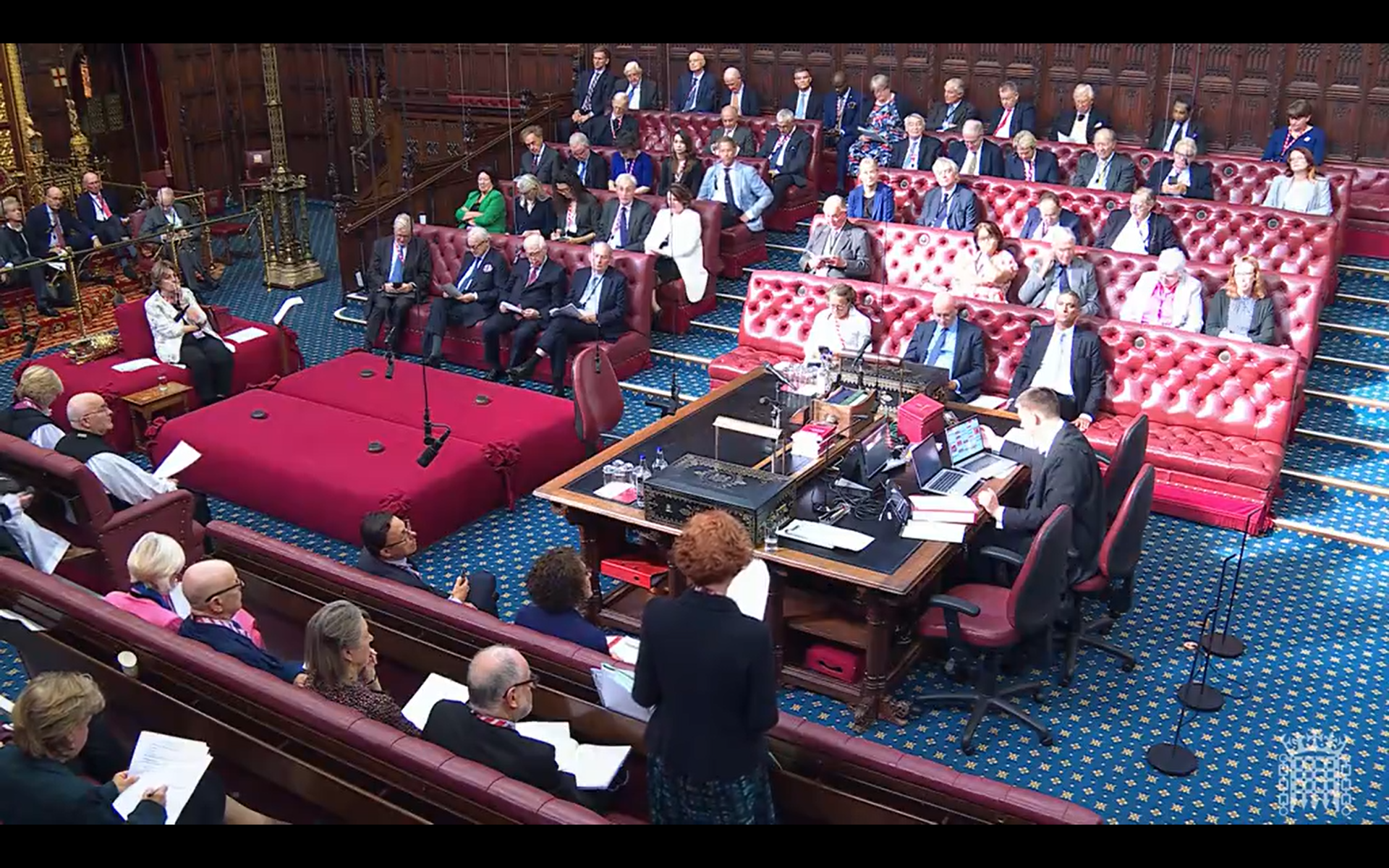It has been another greatly encouraging day in the House of Lords.
Even on the most conservative estimate, around two-thirds of speeches expressed opposition to assisted suicide or at least to the Leadbeater Bill in its present form. In practice, Peers avoid divisions at Second Reading (it is almost 20 years since a Private Member’s Bill was voted down at this point) and the Bill was allowed to proceed “on the nod”, but not before:
- Lord Forsyth withdrew his amendment, which would have required Government time and “full support at ministerial and official level to the peer in charge of the bill”
- Lord Falconer, in a major concession to Baroness Berger, agreed to a Select Committee to gather further evidence. Dignity in Dying had labelled the proposal a “wrecking amendment” but it was becoming clear that many were in favour and so the two Peers led the House in agreeing that:
- “a select committee be appointed to consider the safeguards and procedures contained in the Terminally Ill Adults (End of Life) Bill; that the Committee shall hear evidence from professional bodies, those with professional experience of coronial services, and Ministers… [and] that the Committee… may report by drawing the attention of the House to the evidence received… by Friday 7 November.”
The Bill will make no further progress in the meantime, and it is encouraging that the initial witness list includes Sir James Munby, former President of the Family Division, and Thomas Teague KC, former Chief Coroner.
Speeches
Baroness Berger had earlier made one of today’s many fine speeches:
“We are fortunate: as noble Lords, we have a voice, above-average resources, and agency—the ability to make our own choices, free from interference, prejudice, coercion or undue influence. But assisted dying, if introduced, would exist as a choice not only for us and other comparatively fortunate people; it would enter the lives of those most at risk—people already overlooked, unprotected and vulnerable at the end of life.”
Baroness Berger (@lucianaberger) urges Peers to acknowledge the “reality of our unequal society. I am deeply concerned that this bill as it stands would not only ignore but deepen those inequalities.”#AssistedSuicide pic.twitter.com/YSiGEFs9qw
— Care Not Killing (@CNKAlliance) September 19, 2025
Lord Beith, MP for Berwick-upon-Tweed for more than 40 years, reflected on caring for both his first and second wives “as they faced the terminal stages of metastatic cancer.”
“Whatever view I individually take, as a liberal I cannot simply deny that freedom to others, unless granting the freedom causes or could cause so much harm to others that it justifies the intervention of the law. The debate has demonstrated that there are potentially very significant harms to others which could result from the Bill.”
Lord Beith: “whatever view I individually take, as a liberal, I cannot simply deny that freedom to others ― unless granting the freedom causes or could cause so much harm to others that it justifies the intervention of the law.”#AssistedSuicide pic.twitter.com/wCqNrnrJNf
— Care Not Killing (@CNKAlliance) September 19, 2025
Ofcom Chair Lord Grade was punchy:
“Despite the fatal consequences of drafting errors and omissions, supporters of the Bill are asking this House to believe that their safeguarding clauses will work exactly as drafted and that doctors can always know when you will die. No… It is a risk too far.”
Lord Banner KC addressed “the contention that any expansion of the Bill’s criteria—to the extent that they are on the face of the Bill at all—would need to come back before Parliament.” He argued that the European Convention on Human Rights, as enshrined within the Human Rights Acts,“is a goldmine for judicial expansionism, without Parliament being reconsulted”, and cited a 2002 judgment which says that:
“It will sometimes be necessary to adopt an interpretation which linguistically may appear strained…”
Lord Taylor of Warwick, somewhat echoing Lord Polak from last week (who had been given six months to lives decades earlier), remarked:
“This Bill is based on assessing someone as being within six months of natural death, but such a prognosis is often unreliable. I still recall that awful time when a hospital doctor asked for my permission to turn off the machine that was basically keeping my mother alive… I said no… She went on to live for several years longer, enjoying her family, and in particular her grandchildren.”
An ungiven speech
Lord Alton of Liverpool, who has spoken of the dangers of assisted suicide laws for many years, was prevented from speaking after suffering spinal injuries in an accident shortly before second reading. Here is what he would have said:
📺MUST SEE: Much-loved peer @DavidAltonHL is unable to speak at Second Reading of the assisted suicide Bill in the House of Lords after sustaining spinal injuries in a bus crash.
Watch the speech he would have given: a passionate plea to reject the Bill & protect the vulnerable. pic.twitter.com/5LJfb94R3H
— Right To Life UK (@RightToLifeUK) September 18, 2025
In the outside world?
One Peer pointed to a Times column by former Tory MP Matthew Parris, who wrote:
‘social and cultural pressure will grow on the terminally ill to hasten their own deaths so as “not to be a burden” on others or themselves. I believe this will indeed come to pass. And I would welcome it.’
This is not an isolated view. Earlier this week, The New Statesman carried an opinion piece by journalist Oli Dugmore in which he expounded on “distasteful pragmatism”:
“Most of the money spent on your healthcare by the state will fall in the final months of your life. Assisted dying would appear to mitigate some of those problems, curbing the pensions bill, the NHS bill and the care bill.”
We must keep doing all we can to see that this Bill, which will feed such attitudes, never makes it onto the statute books.

